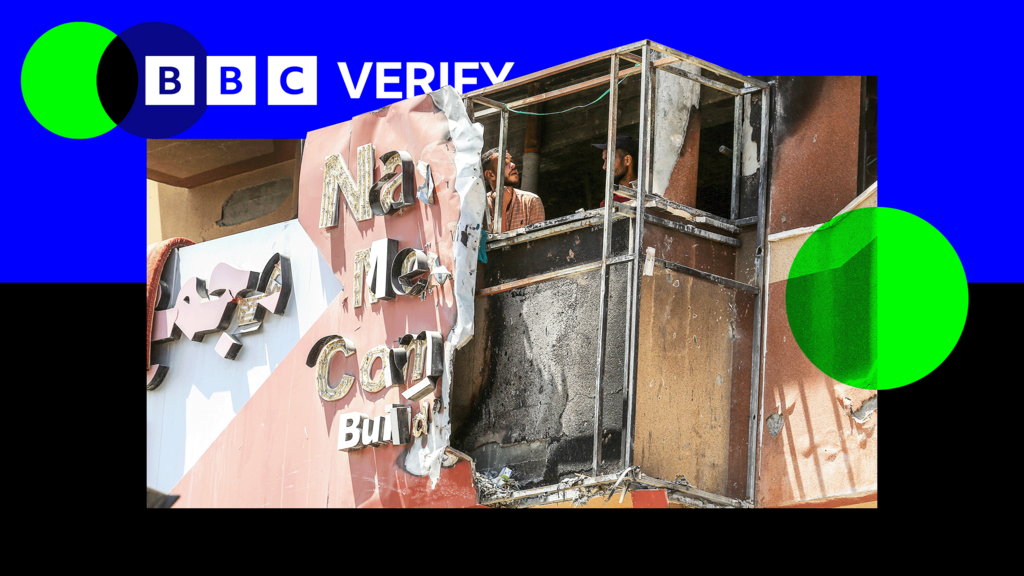Nasser Hospital, the largest medical facility in southern Gaza and one of the few remaining operational in the region, was reportedly struck twice by Israeli forces on Monday.
Reports indicate at least 20 individuals were killed, including journalists and medical personnel.
The incident has elicited widespread international condemnation, with the United Nations emphasizing the necessity of accountability.
Israeli Prime Minister Benjamin Netanyahu characterized the event on Monday as a “tragic mishap.”
On Tuesday, the Israeli military stated that the strike targeted a “camera positioned by Hamas,” though evidence was not immediately provided. They added that an investigation into the authorization of the strikes was warranted.
BBC Verify has analyzed footage from the attack and its aftermath to reconstruct the timeline of events and offer insights into the circumstances.
Reha Kansara provides further analysis.
Verification by Benedict Garman, Sebastian Vandermeersch, Shayan Sardarizadeh and Sherie Ryder. Graphics by Mesut Ersoz. Produced by Katerina Karelli.
Demonstrators urged Isreal’s leaders to end the war and bring back the hostages.
Photographer Ahmed al-Arini told BBC Newshour he had to catch his breath between each photograph.
BBC Radio 4’s Today programme presenter Nick Robinson discusses what can be done to stop the war in Gaza, with a panel of experts and politicians.
Government forces say it is too dangerous for journalists and aid trucks to enter Suweida city.
The deadly unrest, along with the violent Israeli strikes, have re-ignited fears of a security breakdown in Syria
Israel has intensified its airstrikes on Syria, including near the presidential palace and on the defence ministry headquarters in central Damascus.
The former deputy chief of the Israeli intelligence explains how technology and innovation played a key role for Israel in the 12-day conflict.
Lyse Doucet witnesses a mass state funeral for prominent figures killed in the recent conflict with Israel.
The BBC’s Lyse Doucet reports from the ruins of an Iranian state TV building hit during the conflict with Israel.
Mark Rutte appears to approve of the US president’s strong language when Trump spoke about the warring nations on Tuesday.
Lyse Doucet reports from the streets of Tehran, where she says things are staring to return to normal.
The US president expressed his frustration at the conduct of the two nations.
At least four people were killed when an Iranian missile hit a residential building, Israeli officials say.
Footage has emerged showing smoke billowing over Tehran and the city of Karaj, west of the capital.
The Israeli minister tells the BBC that his PM and the US president have been collaborating “from day one”.
The missile appeared to strike near a power station in the city of Ashdod.
It took months of planning and included over 125 planes, a submarine and 14 “bunker buster” bombs. BBC Verify explains how the US mission “Operation Midnight Hammer” took place.
The BBC’s world news correspondent Joe Inwood answers three key questions after the US strikes in Iran.
Emergency workers raced to clear rubble from the site of an Iranian missile attack in the Tel Aviv.
The BBC’s Lucy Williamson is outside Soroka Hospital in Beersheba, in the south of the country, as emergency workers assess the scene.

